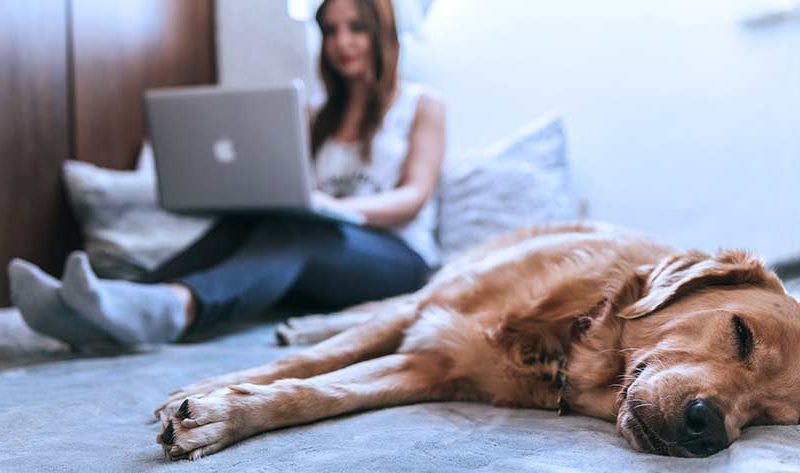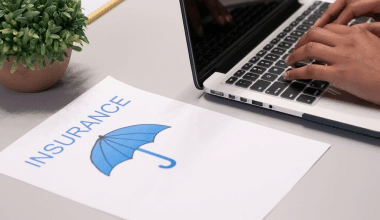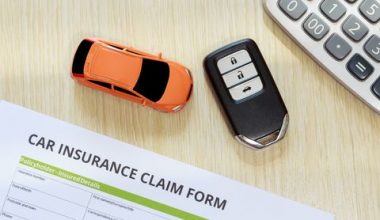According to the Small Business Administration, there are more than 33 million small enterprises operating in the United States, with nearly half of them being home-based. All kinds of enterprises, such as those run by accountants, artists, caterers, cleaners, dog walkers, freelance writers, personal trainers, translators, and instructors, fall under this category. Although beginning a home business is a thrilling venture, novice business owners might not be aware of the risks associated. To help shield your home-based business from financial ruin, you need the proper kind of insurance. We will thus talk about auto insurance quotes and the cost in this piece as well as home business insurance coverage.
What is Home Business Insurance Coverage?
When you operate a business from home or on your property, home business insurance can cover litigation, property damage, business-related injuries (like a client who trips and falls in your office), and employee injuries.
Some business owners rely on their homeowners’ insurance, yet these plans might not be enough at all:
- Only the first $2,500 of commercial property is covered by a typical home insurance policy. Therefore, your reimbursement is only for up to $2,500 if you lose more than that in a house fire, for example. You may not have enough coverage under your house insurance policy, for instance, if you run a home-based business selling garments and a fire destroys your inventory.
- For “other structures” that are utilized for business operations, such as a detached garage where you operate the firm, a house insurance policy typically excludes coverage.
- The typical home insurance policy has a $500 cap on commercial property that is kept off the premises of the primary residence. Therefore, coverage is constrained if you use an expensive video camera outside of your home.
Either a separate small business insurance policy or an endorsement of your homeowner’s insurance policy will provide you with superior home-based business insurance coverage. State Farm, for instance, provides both varieties.
How Home-Based Business Insurance Works
Most homeowner policies have very low limits ($2,500 or less for commercial property) or exclusions for business-related activities. A policy or set of policies that work together to protect a business run out of your home is referred to as home-based business insurance. General liability, professional liability, and commercial property insurance are the three main types of coverage.
Types of Home-Based Businesses Coverage
A business owner’s policy (BOP) is one of the best ways to obtain coverage if you operate a home-based business. General liability insurance, commercial property insurance, and business interruption insurance are the three significant coverage types that make up a BOP. When compared to purchasing each policy separately, a BOP is typically less expensive, and you can add additional coverage types as necessary.
Here are a few typical small business insurance options to think about.
#1. General liability insurance
A general liability insurance coverage covers unintentional harm to other people’s property and accidental injuries you cause while conducting business. For instance, if you inadvertently spill paint on a client’s furniture while operating a painting business out of your house, general liability insurance would cover the cost of replacing or repairing the damaged items. If you are sued as a result of an accident, it also covers your legal costs, verdicts, and settlements.
Other issues like accusations of copyright infringement, reputational loss, and advertising injury are also covered by general liability insurance.
#2. Commercial property insurance
If your company property is stolen, lost, or damaged by a problem covered by your policy, like a fire, it is covered by commercial property insurance. Insurance for commercial properties is frequently referred to as “business property insurance.”
#3. Business interruption insurance
Business interruption insurance pays for costs like lost revenue, wages, and relocation fees if you need to temporarily relocate because of an issue covered by your policy (such as a fire). Also, business income insurance is another name for “business interruption insurance.”
#4. Commercial auto insurance
You require commercial auto insurance if you drive for work-related activities like client meetings or product deliveries. Accidents that occur at work are not covered by your auto insurance policy.
#5. Professional liability insurance
Your company is protected by professional liability insurance against lawsuits resulting from errors committed while operating your firm. For instance, if you work as an accountant and a client alleges that you gave them improper advice, your professional liability insurance may be able to pay for your legal costs as well as any awards or settlements.
#6. Workers compensation insurance
Workers’ compensation insurance covers medical expenses if one of your employees becomes ill or injured at work. Even though sole owners are frequently free from workers’ compensation rules, you should still be aware of them if you have employees.
Home Business Insurance Cost
According to Insureon, a company owner’s coverage costs an average of $57 per month. This covers insurance for general liability, business interruption, and commercial property. Your home-based company insurance costs will be influenced by several variables, such as:
- The type of business
- The types of coverage you buy
- Number of employees
- Business equipment and property
- Location
- Coverage limits and deductibles
Auto Home Business Insurance
Whether or not the vehicles are owned by your firm, auto home business insurance covers them. For small-business owners who drive to work sites or to meet clients, deliver items, transport equipment or supplies, or have workers who drive their vehicles, the coverage is a need.
Although you can frequently combine these to save money, Auto Home Business Insurance is separate from Rideshare Insurance and Personal Auto Insurance. Additionally, you might be able to combine this insurance with other commercial insurance policies like general liability and commercial property insurance.
What is Auto Home Business Insurance?
Vehicles used for business reasons, whether driven by you or an employee, are covered by commercial auto insurance. Up to the insurance limitations, any accident-related costs associated with injuries, fatalities, or property damage are covered.
Auto home business insurance is occasionally confused with rideshare insurance, which is normally necessary if you work as a delivery or rideshare driver. Typically, commercial auto insurance coverage will cover:
- Liability insurance covers injuries, fatalities, and property damage if a driver is at fault for an accident while on the job. Legal bills could be covered by this insurance.
- Medical payments, no-fault or personal injury protection, to cover the driver’s and any passengers’ medical costs after an accident, regardless of who was at fault.
- Uninsured motorist protection covers damages to property and sometimes injuries brought on by an uninsured or hit-and-run driver. If the at-fault driver doesn’t have adequate auto insurance coverage to cover all costs, this policy may also include underinsured motorist coverage.
- Comprehensive and collision coverage covers damage to a work vehicle caused by an object or another vehicle, theft, vandalism, flood, or fire, as well as damage from any of the aforementioned events.
Commercial plans may offer additional protections like towing and labor, reimbursement for rental costs, and lease gap coverage, but they typically exclude coverage for tools and other items you may be transporting in the automobile. Tools held by the business may be covered by a business owner’s policy that offers safeguards for commercial property, whereas personal items in the car may be covered by a home or renters insurance policy.
Do you Need Auto Home Business Insurance?
You need a commercial auto policy if you frequently use your automobile for work, except commuting. Even whether you are a full- or part-time independent contractor or self-employed person, you should think about purchasing commercial auto insurance.
A commercial policy will probably be required if you:
- Drive for cash. A personal policy will protect you when you pick up food for a coworker or drive pals to a concert, but not when you transport people or things for pay.
- Track extensive miles for work, such as frequent trips to retail outlets or construction sites.
- Move equipment or tools that are heavy for use at work.
- Have staff members drive for you. Whether or whether you own a car, you must have insurance for any driving done for work.
Your policy might not be adequate if you only rarely use your automobile for work.
How to Get Auto Home Business Insurance Quote and Buy Coverage
To acquire commercial auto insurance, follow these procedures.
- Choose the drivers and vehicles you need to insure. To obtain rates, you’ll probably need the U.S. Department of Transportation or the vehicle identification number for each vehicle as well as the details of each driver’s license.
- Establish how much protection you require. According to the Insurance Information Institute, insurers normally advise having $1 million in liability insurance. Depending on the size of your fleet, the age of your vehicles, and other considerations, you may require a certain amount of accident and comprehensive coverage.
- Obtain many estimates. You can be sure you’re getting the coverage you need at the best price by comparing business insurance quotes. Progressive, Allstate, Geico, and other online business insurance providers offer quick online quotes.
- Get insurance. Some vendors will put you in touch with an agent to execute your transaction. In other circumstances, you might be able to purchase your policy independently online.
Commercial Auto Home Business Insurance Cost
For commercial auto insurance, small firms typically pay a premium of $142 per month or $1,704 annually. In the event of an accident, this coverage can cover property damage, medical expenses, car theft, weather-related damage, and vandalism.
Businesses that possess their automobiles are required to carry commercial auto insurance. You might need hired and non-owned auto insurance (HNOA) instead for personal, leased, or rented automobiles used for business purposes.
Business insurance is crucial since your auto insurer can reject a claim for accidents involving commercial vehicles. A minimum amount of auto liability insurance is additionally mandated by state law for every vehicle.
The premium is impacted by the value and use of the vehicle.
Commercial auto insurance will cost less for a home-based business with a single vehicle than it will for a business with a fleet. The price is affected by the kind and quantity of company cars, how frequently they are driven, and the coverage options you select.
How to Buy Home-Based Business Insurance
For a small business operating outside the home, an endorsement of your home insurance policy will provide additional coverage. However, larger enterprises or professions that require specialist coverage may require a stand-alone business insurance policy.
#1. Enhance your homeowners’ insurance policy by adding an endorsement
To increase the coverage for your business, homeowners insurance providers often offer endorsements that you can add to your existing policy.
According to the Insurance Information Institute, you may raise your regular insurance limits for commercial property from $2,500 to $5,000 for less than $20 a year by adding a standard home-based company endorsement. A very tiny company with annual sales of $5,000 or less would benefit from this.
#2. Buy a standalone business insurance policy
Stand-alone company insurance policies may provide more comprehensive protection and coverage with larger limits. In comparison to a standard home insurance policy endorsement, this kind of policy may offer higher coverage limits for liability and commercial equipment.
What Are the 2 Types of Business Property Insurance?
A BOP comprises both general liability and business property insurance. Loss or damage to insured property is covered by property insurance if the loss or damage is due to a risk covered by the policy. There are two ways that commercial property policies and BOPs can be written: all-risk or designated risks.
What Are the Limitations on a Homeowners Policy for a Home Run Business?
Following are a few typical exceptions for home-based businesses: There is no data loss insurance. Limited coverage for business equipment on your property and within your house (often up to $2,500). No protection for corporate records.
Why Do You Need Business Property Insurance?
In the event of a covered loss, Business belongings Insurance helps safeguard your company’s equipment and personal belongings.
Can I Write off Home Insurance for Home Business?
If you utilize a portion of your home for business, you can deduct a portion of your home insurance premium from your taxes. If your home is damaged in a federally declared disaster, you can also deduct any uninsured financial losses.
Can Home Insurance Be a Business Expense?
Yes. Homeowners’ insurance costs may occasionally be deductible as a business expense.
What Type of Insurance Do You Need to Run a Business?
Every company with employees is required by federal law to have workers’ compensation, unemployment, and disability insurance. Additionally, some states demand supplementary insurance. Visit the webpage for your state to learn more about the insurance needs for your business as they differ by state.
Conclusion
Home-based business operators need to make sure they have the appropriate insurance for their operations. A homeowner’s policy limit may not be enough or, depending on the loss, may not provide coverage for a claim related to a company. Home-based business insurance is a small business policy that safeguards your commercial property, offers liability protection, and provides peace of mind that your home and business are secure.
Related Articles
- Home-Based Business Ideas 2023: Top 55 Low Capital Businesses
- FASHION DESIGN BUSINESS: How to start a home-based fashion design business
- UNIQUE BUSINESS IDEAS 2023- Top 20 to earn from (+ free tips)
- AVERAGE COST FOR BUSINESS INSURANCE IN 2023
- AUTO RENTAL INSURANCE: Top Credit Card, Commercial, Coverage & American Express
- RECRUITMENT MARKETING: What It Is, Examples & Why It is important
- <strong>Top Best Third-Party Delivery Services Industry for Food & Drink in 2023</strong>





